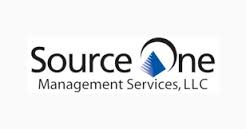
Ah the term Millennial ; the stigma associated with generation is so palpable that you can sometimes feel it before you finish saying the word itself. We’re a hotly discussed demographic even appearing within the agenda at the Institute for Supply Management’s Annual Conference, where one of my colleagues will be moderating a panel of millennials in a discussion titled, Should I Stay or Should I Go? Socially, millennials are a unique breed that continues to forge their way into today’s society by being progressive and outspoken. However, when it comes to the workplace many millennials require certain circumstances within their environment to truly excel. Being someone who is right in the middle of the millennial age range, I’ve evolved as a professional throughout my various experiences in Corporate America and in privately held firms. As I begin to mentor new hires and call young millennials colleagues, I’ve learned that there are a few key elements that today’s leaders need to know about this potion of today’s workforce.
Structure
No matter how open minded, talented, intelligent, and gifted millennials are they need some sense of structure in their workplace. Allowing millennials free range to figure out everything themselves is not the best way to have them contribute effectively. They need to see an end goal, and (more importantly) a feasible path on how to get there. Do not confuse this with holding their hands. When given proper direction, the resources needed, and enough time, the work will get done. Those with a good work ethic and drive will figure out how to fill the gaps during the process, but mangers need to be able to point them in the right direction before cutting the cord.
Over Communicate
One big knock against this generation is that they attempt to find all of their answers in numbers and statistics, and they lack the social and emotional intelligence (EI) needed to maximize their impact in the workplace. Think about our constant need to turn to Google for the immediate answer to our questions, and our reliance on text over face-to-face communication. Millennials are now fully engaged with the baby boomer generation in the workplace, and this young generation needs to be able to clearly communicate with their colleagues, managers, and clients beyond a spreadsheet. My experiences have taught me that you can never be too certain, and that documenting instructions can prove to be a life saver in the name of accuracy and efficiency. Managers need to make sure their instructions are clear, and understood by said millennial. Having them repeat the task/goal is a quick and easy way to ensure your message hit home, and will not result in wasted effort.
Concentrate on Leading
Millennials are the next generation of leaders. In order to groom these new leaders, current executives and managers need to focus on leading. Merely providing someone with the resources needed to grow is not enough to fully push them over the top. Demonstrated leaderships and a willingness to listen and learn from your workforce is a good way to get a millennial employee to buy in to what you’re doing at your company. Lead them, direct them, and listen to them.
Work-Life Balance
Before you roll your eyes understand that gone are the days of working 70 or 80 hour weeks to this generation. They work to live, not live to work. If you expect a millennial to work much over 40-45 hours a week, you may be in the market for a new employee, because they ll leave. They do not identify themselves with how they pay their bills. Allocating your resources and workload across your workforce evenly allows a proper work/life balance that millennials can enjoy and not feel overwhelmed. Instead, make sure you are doing what you can as a leader to ensure they are working those 40-45 hours each week in the most efficient manner possible. That way your company gets a better ROI and you don’t burn out employees. Millennials are here to stay. Just as we do in all other aspects of our lives, we must prepare for change and be open to any and all processes. The world is evolving, and we need to make sure that this section of the workforce (soon to be the majority of the workforce) is well prepared to take the reins and lead. Keeping the above mentioned themes in mind is a positive step in establishing a foundation to help propel millennials into the rest of their careers.
About the Author: Nicholas Harasymczuk is a Project Analyst at Source One Management Services. In his role, Harasymczuk helps clients optimize their supply management operations through supplier identification, strategic sourcing, and contract negotiations. With a deep understanding of supply chain and logistics, Harasymczuk is a proven asset in streamlining processes to drive sustainable cost savings.
